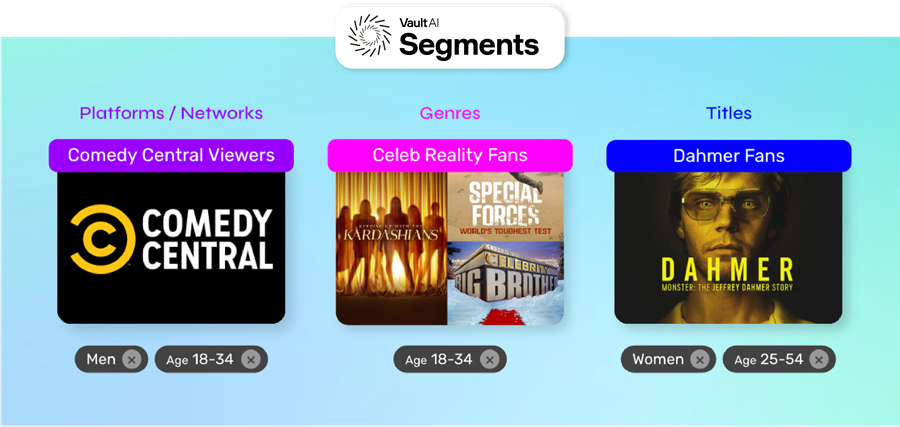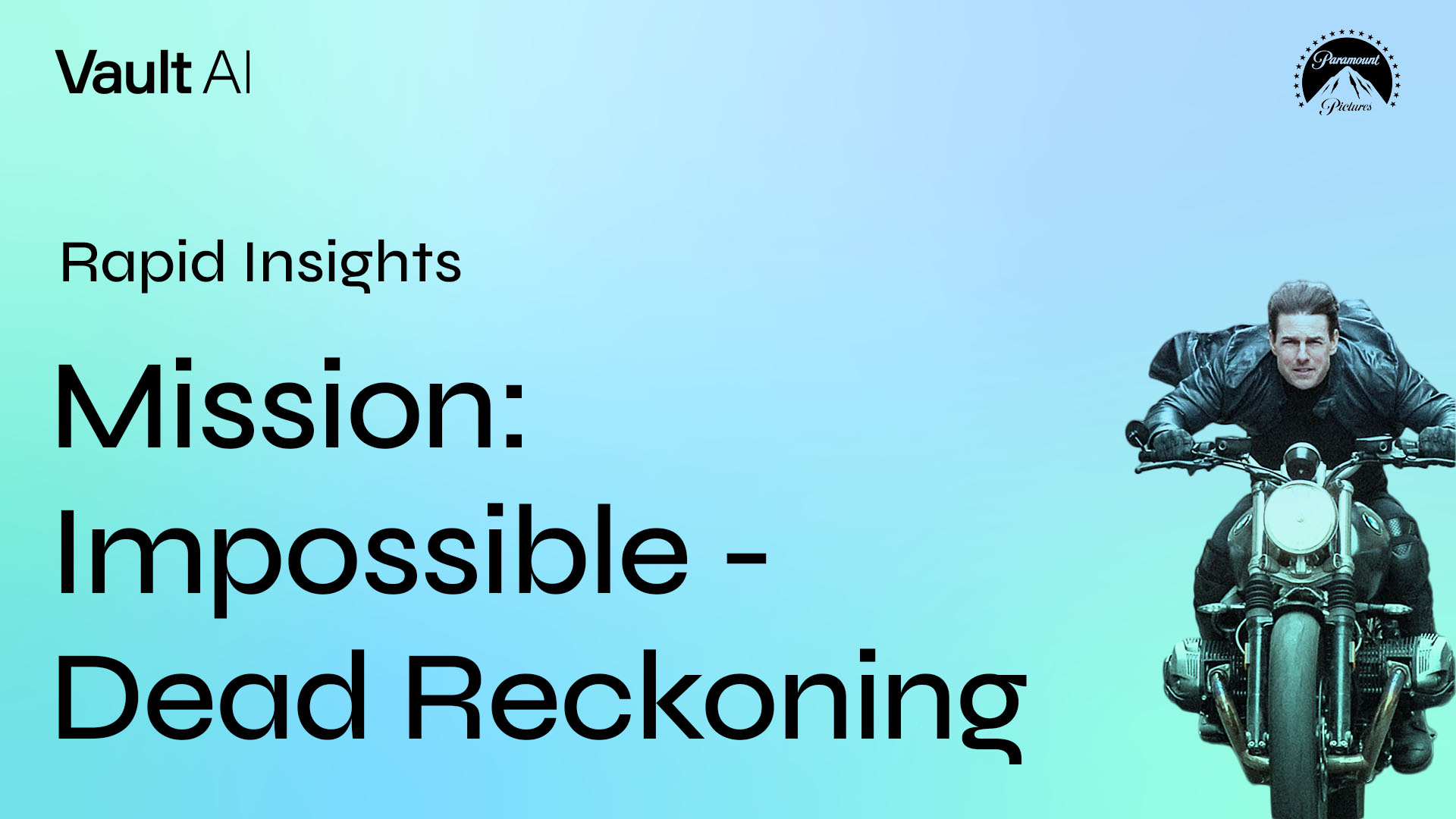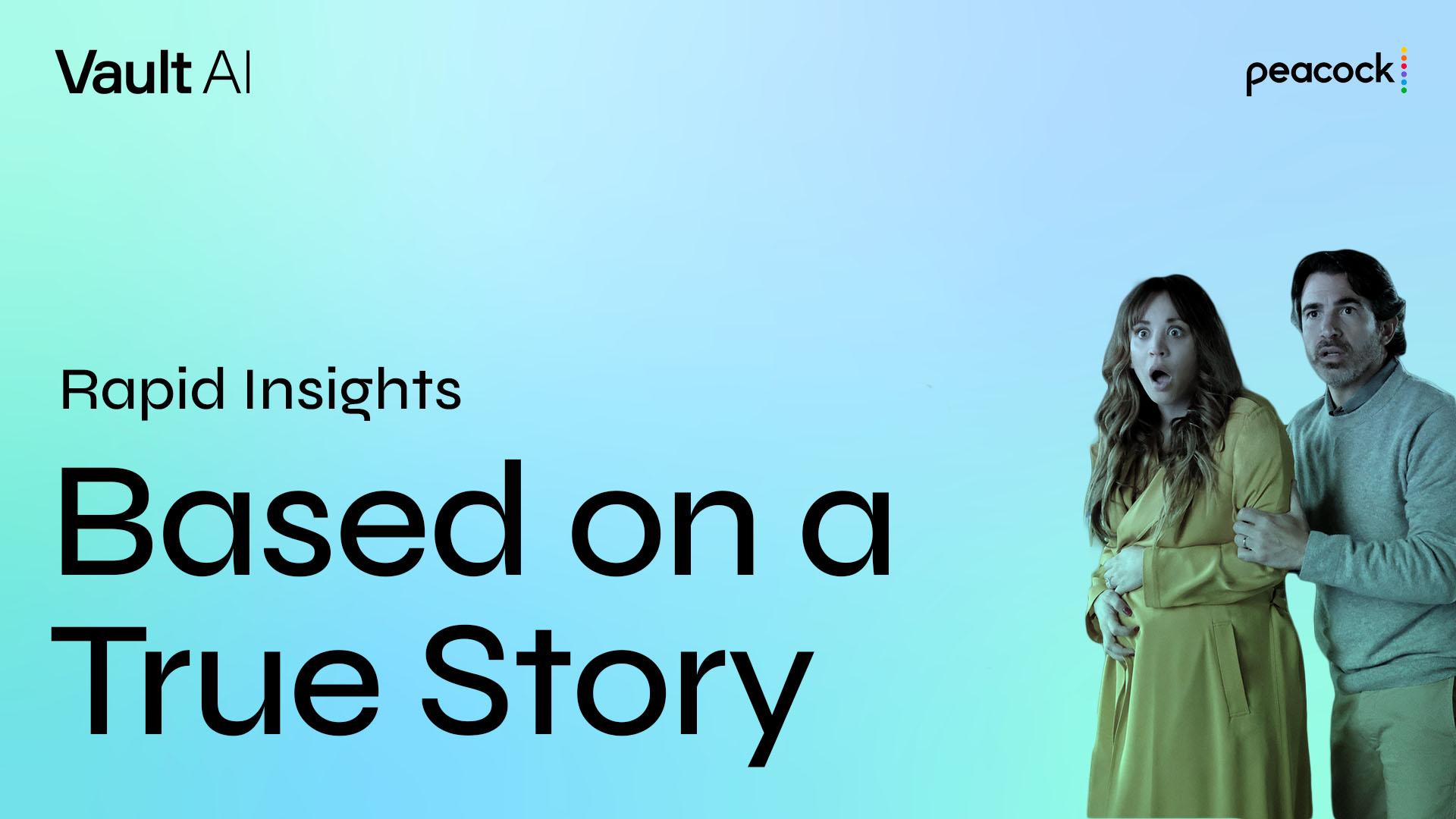Amazon Prime Video’s newest original series, releasing next week, will be joining the swelling ranks of buzzy scripted shows developed from popular podcasts. This notable list includes the likes of Gaslit, The Dropout, Dirty John, and The Shrink Next Door from the based-on-a-true-story side, as well as Homecoming and Archive 81 from the purely fictional; Prime’s horror-dramedy will join the latter as the Sweeney Todd-inspired story of an ex-felon masseuse who inadvertently becomes a killer. For this analysis, The Horror of Dolores Roach trailer was examined, though it is not unusual for Vault to analyze podcasts, something done early on to test the commercial viability of content even before a script has been written.
Here’s what you need to know about The Horror of Dolores Roach and this podcast-based trend:
Vault AI uses index scores to describe the impact a given story/theme/element will have on specific KPIs:
≤79 Disappointing 80-89 Challenging 90-109 Average 110-119 Promising 120+ Outstanding
Is there a typical audience for these types of shows?
Not really. The specific story being told determines who’ll be watching it, from the heavily female-skewing (Dirty John, The Thing About Pam) to the more male-leaning (WeCrashed, Joe vs Carole), though nearly all appeal most strongly to viewers 30+. For Dolores Roach, we’re predicting a balanced viewership (51% female) and being mostly older (67% aged 30+).
What do podcast-based series tend to have in common?
Dark twists. These tales–whether fictional or not–are filled with Scandal, Conspiracy & Cover-Ups, Betrayal, Moral Dilemmas, Scheming, and Ruthlessness, all of which provide excellent fodder for a story told in chapters. Audiences can’t help but come back to watch the shocking events unfold, whether it’s the hubris-filled downfall of a company (WeCrashed, The Dropout), the concealment of murder (The Thing About Pam, Dr. Death, Dolores Roach), or abusers and con artists behaving badly (Dirty John, The Shrink Next Door, Homecoming).
What makes these shows so watchable?
The relationships. To flesh out their deception-filled worlds, these series turn the spotlight onto the protagonists’ loved ones, who either contribute to their schemes or become innocent collateral damage. Either way, the focus on themes like Family Conflict, Marital Problems, Mother-Child Relationships, Family Dysfunction, Unlikely Friendship, and Coworker Dynamics adds layers and emotional stakes to the can’t-look-away core conspiracies.
What will set Dolores Roach apart?
Its setting. While the series leans into the same central themes that make podcast-based shows popular (Conspiracy & Cover-Ups, 152; Moral Dilemmas, 135; Friendship, 129), it’s the specificity of its world that will draw in viewers. Dolores Roach’s built-in Cultural Diversity (160) as it follows Latino characters in the rapidly gentrifying neighborhood of Washington Heights (NYC Setting, 129) and its plunge into the Culinary World (128) of a Sweeney Todd-inspired empanada shop will help drive both ratings and bingeability.
Is the original source podcast important to a show’s ratings?
No. Though it may help with initial buzz, the podcast IP that gave birth to these scripted series is not a top reason for viewers to watch them; instead, audiences tune in for the specific story being told. That said, a show Based on a True Story that has hit the zeitgeist–which the original podcast may have fed into–can indeed ride the popularity of its tale to better ratings (The Dropout, WeCrashed, The Thing About Pam, Dr. Death, Joe vs Carol).
Introducing SEGMENTS
Break free from slow and expensive oversampling
Create hyper-targeted fan groups and analyze every audience that matters to you.
Introducing SEGMENTS, the groundbreaking new feature revolutionizing how you analyze and target your audiences.
Get rich AI-powered audience insights at your fingertips with 5 Custom Segments included as standard. Define your own or choose from our library of 500+ ready made Segments. No extra costs, no time delays.
*Publicly released trailers for series are evaluated using Vault AI’s algorithms – utilizing our proprietary 120K+ story element database alongside ratings performance and other datasets – to identify unique combinations of stories, themes, characters, and genre elements that will drive success.






